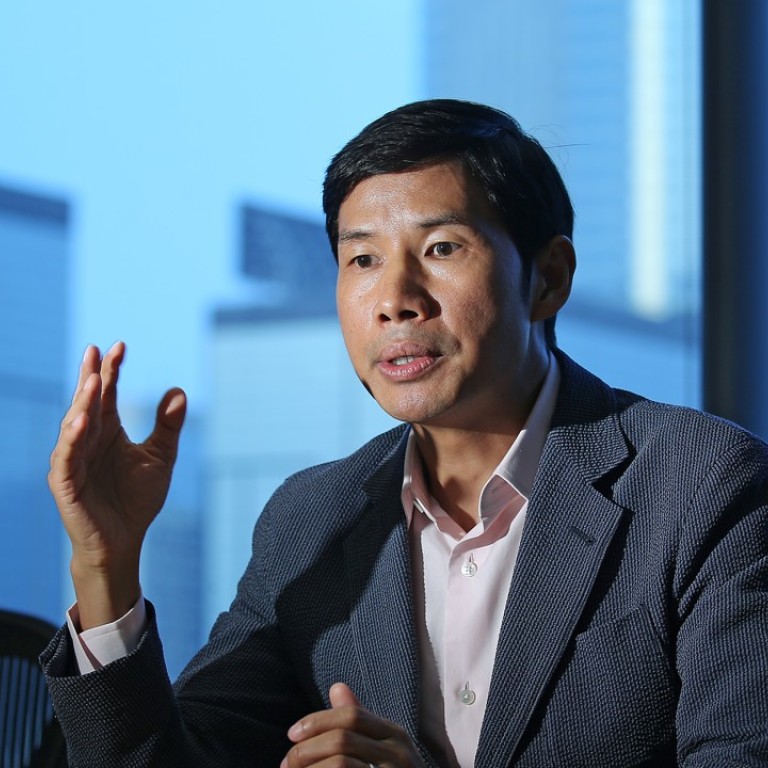
China to lower foreign investment barriers as emphasis shifts to innovation, says deal maker
Foreign investors can new opportunities, fewer market hurdles, as Beijing embraces innovation, says the former Asia head of Goldman Sachs.
Multinational companies, foreign private investors and international private equity investment funds will see more investment opportunities in China in the next five years, as the country plans to maintain a focus on economic development and unleash the potential for innovation growth, according to Primavera Capital Group’s founder Fred Hu Zuliu.
He expects China to lower barriers for foreign players to invest in technology and finance.
“In the last five years, [foreign investors] were cautious on whether China would continue to open up., Hu said in an interview with South China Morning Post. “They perceived that China would adopt protectionism … They presumed that doing business in China would become more difficult” than during the era of former premier Zhu Rongji during the late 1990s, he said.
The former Greater China chairman of Goldman Sachs believes President Xi Jinping will make an effort to open up the market during his second five-year term, which ends in 2022.
The week-long 19th National Congress of the Chinese Communist Party (CPC), which concluded on 24 October, highlighted the goal of building a “moderately prosperous society” by 2020. Xi laid out the ambitious plan, highlighting China’s economic and technological advances, and the goal of transforming the nation to the top leagues of global innovation by 2035.
Xi also highlighted rebalancing to a more sustainable, greener and more equitable growth model, while further opening domestic markets.
“There will be growing investment opportunities for multinational companies, for private enterprises and professional investment firms like us,” Hu said. “The investment opportunities will be driven by consumer services, innovation and technology. I am very excited about the economic outlook and investment opportunities that will emerge over the next few years.”
However, he believes some foreign investors would take a wait-and-see attitude.
“In the past five years, the policy and the implementation were contradictory,” he said. “In the next five years, we will see something more consistent from the president, premier, ministers and mayors. China will enter a new stage of open up.”
He expects China will further open these sectors to foreign competition.
Ratings agency Moody’s said the government’s commitment to the further opening of domestic markets and encouraging the entry of foreign investors would help Chinese banks and other companies because they are likely to improve market discipline, encourage innovation, and strengthen productivity.
But the opening of domestic markets could interfere with the objective of having strong state-owned enterprises that play a leading role in key sectors, Moody’s said in a report released last week.
Hu said Primavera will continue to focus on the new economy as a beneficiary of the policy direction.
“It will be the same as when we started the company eight years ago,” said Hu.
Founded in 2010, Primavera is a China-based investment management firm which overseesfunds for institutions, companies and families in China and around the world.
It has investments in companies that benefit from rising consumption and urban living. These include Alibaba Group and Ant Financial. Alibaba is the owner of South China Morning Post.
Earlier this year, Primavera joined a US$1.1 billion fundraising round for Koubei, Alibaba’s online-to-offline commercial services platform. It also took a stake in Zhejiang Dasouche Finance Leasing Company, the largest service provider for second-hand automobile merchants in China.
Primavera and CITIC Private Equity are seeking to raise US$5 billion for new investments, according to Reuters.
While Hu declined to comment on any specific fundraising plans, he said his company took a long term approach in its China investments , focusing on consumer driven, innovation driven, health care and finance sectors.
Hu will speak at the AVCJ Private Equity & Venture Forum in Hong Kong on November 14.
He said private equity funds would see more business opportunities as China tightens capital outflow controls.
The changes mean that sophisticated investors have less competition when competing for assets.
“A few years ago, a coal miner or a property developer could invest overseas,” he said. “This led to a lot of buyers taking stakes that were not necessarily strategic or long term. We are now seeing this tail off and seeing smarter elements, which are also more aligned with national growth sectors. In this market, only sophisticated investors who have US dollar funds can stay in the game.”

